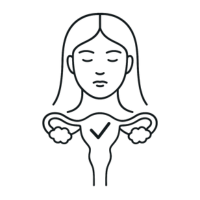
Polycystic Ovary Syndrome (PCOS) is a common hormonal disorder that affects women of reproductive age. It happens when the ovaries produce too much of the male hormone (androgens), which can interfere with regular ovulation. The condition is called “polycystic” because some women may develop multiple small, fluid-filled sacs (cysts) on their ovaries, but not everyone with PCOS has cysts.
Understanding why do polycystic ovaries (PCOS) occur involves looking at several contributing factors. The exact cause is still unknown, but research shows that a combination of genetic and hormonal imbalances is involved. Insulin resistance is one of the most common triggers. When the body struggles to use insulin effectively, it leads to increased androgen production by the ovaries. These hormonal changes disrupt the menstrual cycle and prevent normal ovulation.
It’s a misconception that PCOS only affects overweight women; it can impact women of all body types. There is no permanent cure, but the condition can be managed with lifestyle changes, medications, and regular monitoring.
Early diagnosis helps reduce the risk of complications like type 2 diabetes, high blood pressure, and endometrial cancer. Recognising the signs early helps women take proactive steps toward managing their reproductive and overall health effectively.
People need PCOS treatment to manage symptoms, regulate hormone levels, and reduce the risk of long-term health problems. Without treatment, PCOS can lead to serious complications like infertility, type 2 diabetes, heart disease, and endometrial cancer. Treatment helps improve menstrual regularity, support fertility, control weight, and reduce acne or excess hair growth. Early diagnosis and proper care allow women to lead healthier, more balanced lives.
The exact reason for PCOS is not fully understood, but several factors are linked to the condition:
Symptoms of PCOS (Polycystic Ovary Syndrome) vary from person to person and can start during puberty or later in life. Some women experience only a few signs, while others may have several. The most common symptoms include:
These symptoms lead to treatment when they interfere with daily life, affect fertility, or show signs of hormonal imbalance. If irregular periods, acne, excess hair growth, or weight gain persist, doctors may suggest tests to confirm PCOS and rule out other conditions.
Detecting PCOS involves reviewing symptoms, medical history, and running a few diagnostic tests. A doctor may recommend:
If you experience any of these symptoms for more than a few weeks, it is important to seek medical advice. Early diagnosis and treatment can help manage PCOS effectively and prevent long-term complications.
Irregular periods, whether missed for months or coming more than once a month, are common in women with PCOS. Managing the symptoms early can help prevent further complications and support fertility, emotional well-being, and overall health. The following explanations address common concerns and support more regular cycles.
Frequent menstruation, such as getting your period 2 to 3 times in a month, is often a sign of disrupted ovulation. In women with PCOS, high levels of androgens and insulin resistance interfere with the normal hormonal rhythm. This leads to an unstable uterine lining that may shed irregularly, causing what appears to be multiple periods.
Understanding why does menstruation occur 3 times in a month or more often can help identify underlying hormonal issues. Other causes may include stress, thyroid problems, fibroids, or changes in birth control. It’s important to monitor the pattern and seek medical advice for proper diagnosis and treatment.
Sometimes, women experience bleeding again just a few days after their period has ended. This can be confusing and is often linked to hormonal imbalances, especially in conditions like PCOS. When ovulation doesn't occur properly, the uterine lining may become unstable and shed at irregular times. This explains why the period returns after ending, even if a full cycle hasn't passed. Other possible reasons include breakthrough bleeding due to stress, sudden weight changes, or reaction to medications or birth control. Keeping a record of your cycle and consulting a gynaecologist can help pinpoint the exact cause.
Getting your period again just 15 days after the last one may be a sign of an irregular cycle, especially common in women with PCOS. This usually happens when hormone levels fluctuate and ovulation does not follow a regular pattern. As a result, the uterine lining may shed sooner than expected. It could also be linked to stress, thyroid dysfunction, certain medications, or changes in weight. Medical evaluation is important to rule out underlying issues and restore balance.
Missing your period for two months or more can be worrying, especially if you're not pregnant. In women with PCOS, this is often due to irregular or absent ovulation caused by hormonal imbalance. One of the main causes of a missed period for two months is excess androgen or insulin resistance, which disrupts the normal menstrual cycle. Other factors include stress, sudden weight changes, thyroid disorders, or overexercising. Long gaps between periods may lead to a thickened uterine lining, increasing the risk of complications. It's important to consult a doctor to find the root cause and start appropriate treatment.
Disclaimer: Irregular periods can have multiple causes, and only a qualified gynaecologist or healthcare provider can provide an accurate diagnosis and personalised treatment plan.
These are some of the ways to get periods:
Always consult a qualified gynaecologist or healthcare provider before trying any remedies or hormonal medication to regulate your menstrual cycle.
Medication plays a key role in managing PCOS symptoms and restoring menstrual regularity. When periods are delayed or missed, and lifestyle changes are not enough, doctors may prescribe specific medicines to support hormonal balance and ovulation. This information is for general awareness only. Always consult a qualified doctor before starting any medication.
Always consult a qualified gynaecologist or endocrinologist before starting, stopping, or changing any medication for missed periods or PCOS. Self-medication can cause side effects or worsen symptoms.
If you or your loved ones have signs of PCOS, Bangla Health Connect connects you with specialists at the leading hospitals for expert care and personalised support.
.png)
Through Bangla Health Connect, Bangladeshi patients can access world-class hospitals in India, Thailand, and other leading destinations that specialise in diagnosing and managing Polycystic Ovary Syndrome (PCOS). Many women travel abroad for accurate diagnosis, advanced fertility support, and specialised hormonal care that may not always be available locally.
Here’s why Bangladeshi patients choose PCOS treatment with Bangla Health Connect in top hospitals worldwide:
For Bangladeshi women, Bangla Health Connect offers a trusted route to expert gynaecologists, modern fertility care, and affordable PCOS management in reputed hospitals worldwide, ensuring long-term health, confidence, and quality of life.
Bangla Health Connect connects Bangladeshi women with leading hospitals that specialise in gynaecology, endocrinology, and fertility care. These centres are recognised for their expert doctors, advanced hormonal and fertility treatments, and modern diagnostic methods for managing Polycystic Ovary Syndrome (PCOS) and related reproductive disorders. Patients receive comprehensive, timely, and compassionate care abroad, helping restore hormonal balance, improve fertility, and enhance overall well-being.

.jpg)

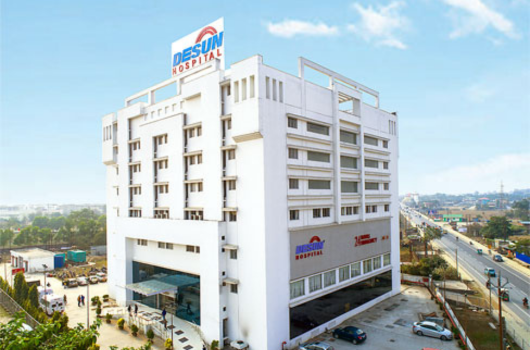

.png)
.png)

.jpg)
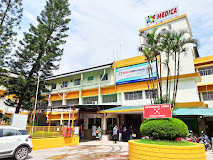
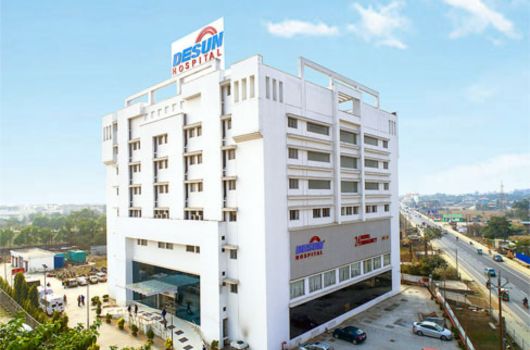
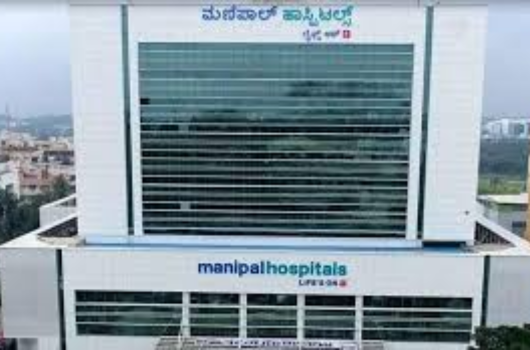

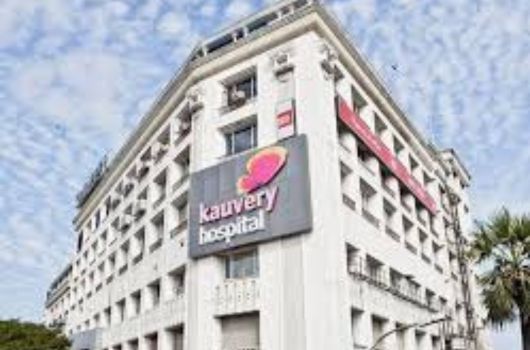

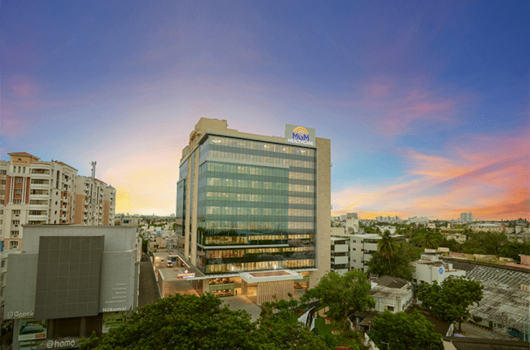


.png)
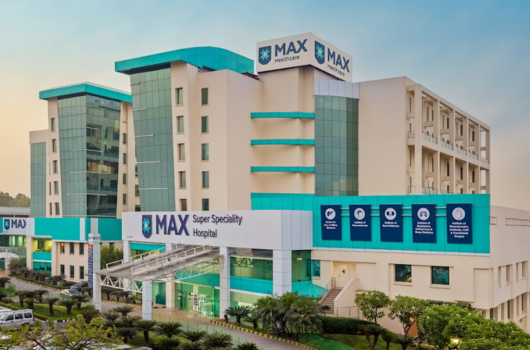
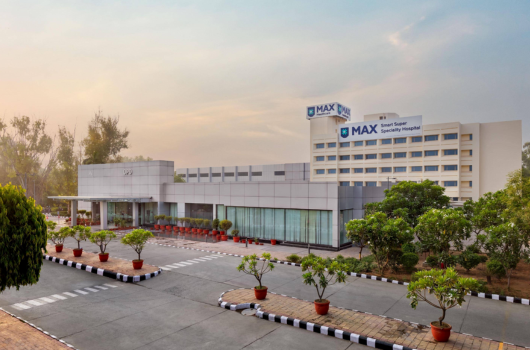

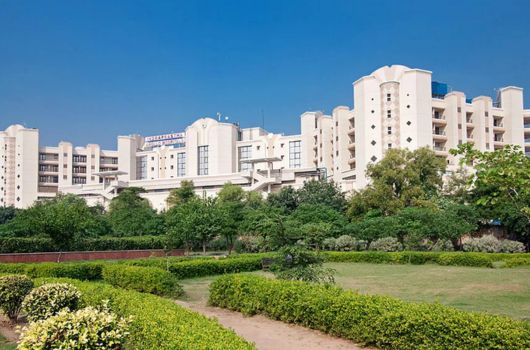


.jpg)


These hospitals follow international treatment guidelines and provide full support for Bangladeshi patients through Bangla Health Connect.
In India, the average cost ranges from $350 to $1,000, while in Thailand, it ranges from $2600 to $4,800. The final cost may vary based on multiple factors such as the treatment method, hospital location, and diagnosis. Before viewing the detailed table of treatment-wise costs, it's helpful to understand what influences these expenses most.
Several factors can affect the total cost of PCOS treatment:
Note: India is well known for offering cost-effective advanced treatment. Hospitals combine affordability with strong clinical outcomes, supported by skilled experts and the widespread availability of generic medicines.
Note: Thailand’s hospitals are often promoted as premium destinations for international patients. Their higher costs reflect the use of advanced imported medicines, luxury infrastructure, and all-inclusive patient care packages.
The costs listed are approximate and may vary based on hospital, location, and patient needs. Consult the healthcare provider for accurate and updated information.
The currency conversion rates in the table above are based on data from November 2025.
For more help on cost estimates and personalised guidance, contact Bangla Health Connect.
Success in PCOS treatment means managing symptoms effectively, restoring hormonal balance, and improving fertility and quality of life.
In women with PCOS, IUI can be an effective fertility treatment, particularly when combined with ovulation-inducing medications. The success rate largely depends on factors such as age and overall reproductive health. With proper management, the pregnancy rate with IUI in PCOS patients can reach around 20% per cycle, helping restore fertility chances closer to a normal conception rate.
Top hospitals focus on accurate diagnosis, advanced therapies, and holistic care for women with Polycystic Ovary Syndrome (PCOS). Their approach includes:
This combination of precise diagnosis, advanced therapy, and integrated care helps restore hormonal balance, improve fertility outcomes, manage symptoms, and promote overall women’s health and well-being.
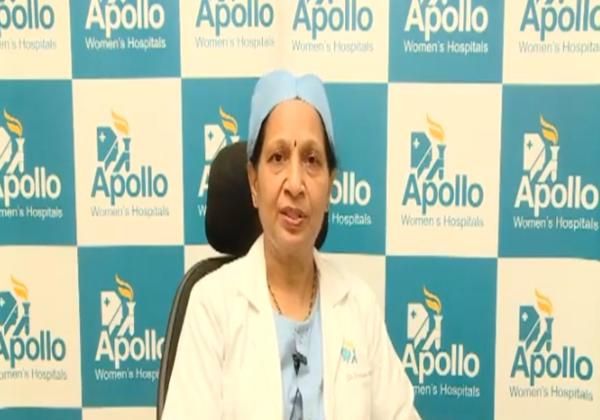
Dr. Sumana Manohar, Senior Consultant at Apollo Hospitals, Chennai, explained how IVF can help women with Polycystic Ovary Syndrome (PCOS) overcome infertility. She highlighted that PCOS often leads to irregular ovulation, making natural conception difficult. At Apollo, IVF protocols are carefully customised for PCOS patients to minimise risks like Ovarian Hyperstimulation Syndrome (OHSS) while improving success through tailored stimulation and embryo selection. Dr. Sumana also emphasised the importance of emotional support for women undergoing fertility treatment
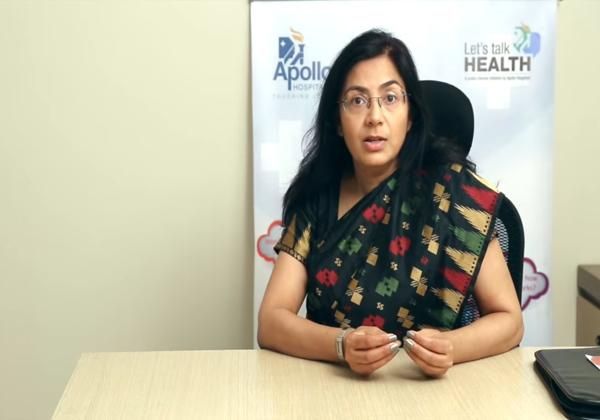
Dr. Usha Ayyagari, Consultant, Department of Endocrinology, Apollo Speciality Hospitals, OMR, busts myths on PCOS. Polycystic Ovary Syndrome (PCOS) is a common hormonal condition, affecting about 6% to 10% of women in their reproductive years. A common myth is that only overweight women develop PCOS, but in reality, it can also affect those with a normal body weight. While the presence of ovarian cysts is one aspect, a true PCOS diagnosis involves additional symptoms such as irregular menstrual cycles, acne, unwanted facial or body hair (hirsutism), thinning hair on the scalp, weight gain, and fertility challenges.
Diagnosis usually includes hormone blood tests and a pelvic ultrasound. Fortunately, PCOS is manageable with proper treatment. Lifestyle changes like modest weight loss (5 to 10% of body weight or around 5 to 7 kg) can bring significant relief from symptoms.
Dr Ayyagari advises women with these symptoms to seek expert evaluation and treatment at Apollo Speciality Hospitals for personalised care and long-term management.
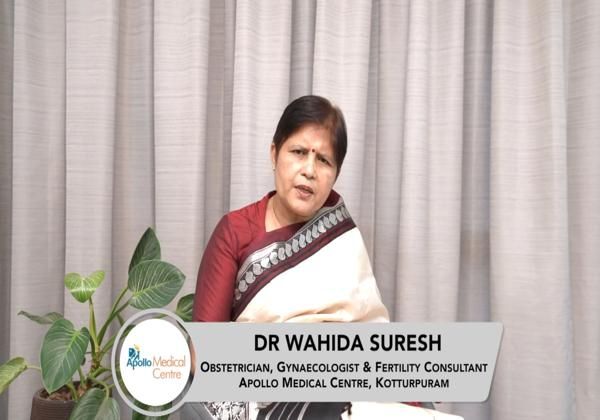
Dr. Wahida Suresh, Obstetrician, Gynaecologist, and Fertility Consultant at Apollo Medical Centre, Kotturpuram, Chennai sheds light on Polycystic Ovarian Syndrome (PCOS). She explains that PCOS is a hormonal condition marked by irregular, absent, or no menstrual periods, and it can affect both overweight and lean women. She points out that menstrual irregularities are among the most common signs of PCOS, but the condition is both treatable and preventable. She cautions against self-diagnosis, noting that many women visit her clinic assuming they have PCOS without undergoing proper evaluation.
According to Dr. Suresh, the first line of management is lifestyle modification, with an emphasis on regular physical activity and a balanced diet. Doctors typically begin treatment with counselling and an assessment of the patient’s lifestyle before considering medications. She reassures that, in many cases, PCOS can be effectively controlled with healthy habits, and medications are used only when lifestyle changes aren’t enough.
Bangla Health Connect helps Bangladeshi women access expert care for PCOS and menstrual disorders worldwide. We work closely with the top hospitals to ensure a smooth and stress-free treatment journey from consultation to recovery.
Bangla Health Connect makes this process simple and supportive, from travel arrangements to ongoing medical guidance, ensuring Bangladeshi patients receive high-quality care with peace of mind. With over 60,000 Bangladeshi patients assisted, Bangla Health Connect has built strong trust through clarity, care, and personal support.
Contact Bangla Health Connect today to begin your treatment journey with trusted support every step of the way.
Note: Bangla Health Connect does not provide medical advice of any kind.
✅ Share Your Reports - Bangla Health Connect connects you with trusted hospitals worldwide.
✅ Get treatment plans from leading Hospitals worldwide
✅ Choose the one that fits you
✅ Let us handle the rest
Polycystic Ovary Syndrome (PCOS) is a hormonal disorder that affects women of reproductive age. It causes irregular or missed periods, weight gain, acne, excessive facial hair, and sometimes difficulty getting pregnant. It is linked to insulin resistance and hormone imbalance.
PCOS is diagnosed through a combination of physical examination, medical history, blood hormone tests, and an ultrasound to check for enlarged ovaries or cysts. A gynaecologist may also evaluate symptoms like irregular cycles, acne, and hair growth.
Treatment depends on the symptoms and health goals. Options include lifestyle changes (diet and exercise), hormonal medications to regulate periods, insulin-sensitising drugs like metformin, and fertility treatments if pregnancy is desired. Treatment should be personalised by a specialist.
PCOS cannot be completely cured, but it can be managed effectively. Many women control their symptoms through lifestyle changes and medication. Early diagnosis and proper treatment help prevent long-term complications like diabetes and infertility. Your gynaecologist will guide you throughout.
A typical treatment trip may last 1 to 2 weeks for diagnosis, consultation, and follow-up. If fertility treatment or minor surgery (like ovarian drilling) is needed, your stay may be slightly longer, depending on the procedure and recovery.
Yes. Bangla Health Connect connects you with top gynaecologists and PCOS experts in the world. We help you schedule appointments, coordinate tests, and ensure you receive timely, personalised care.
Yes. Our team provides full local support, including airport pickup, hospital coordination, interpreter services if needed, and continuous help during your medical journey.
Yes. Bangla Health Connect offers full medical visa support, including official invitation letters from the hospitals, step-by-step guidance, and fast-track options to simplify travel for treatment.

